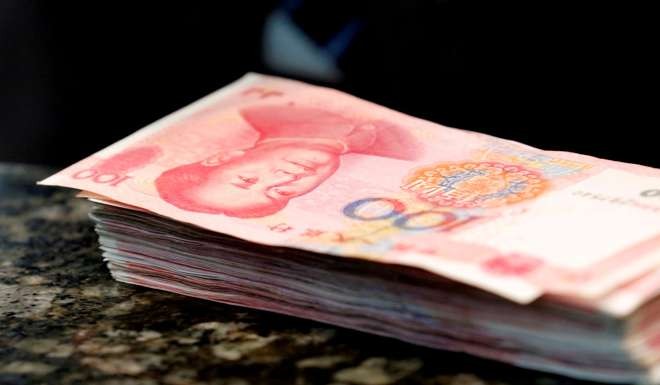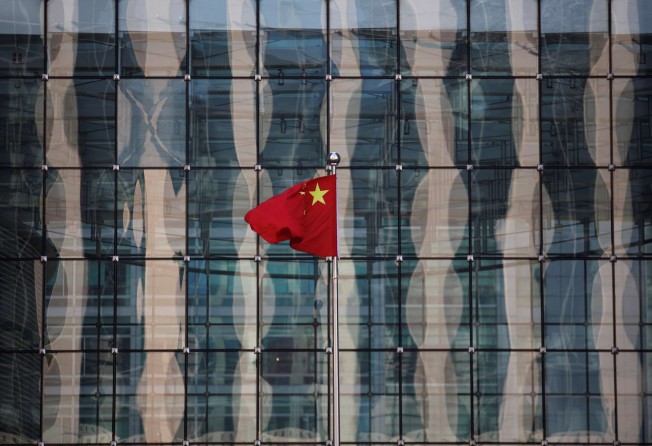
Banks assume the ‘burden of proof’ in China’s crackdown on capital flight

How bad will Beijing’s latest tightening of capital exodus be? KYC is what mainland bankers are comparing it to.
That’s the short form for “know your client”, a verification process widely used by western banks for new account openings, but one that bankers frown upon because it is cumbersome to manage. KYC also shuts out small and medium businesses while leaving big corporates largely unscathed.
This is what you get when bankers are made the frontline gatekeepers in the battle against capital flight .
Mainland Chinese authorities are reportedly banning overseas investment above a certain size and of a certain nature. Yet, the numbers and the definition are designed to be circumvented.
The State Administration of Foreign Exchange (SAFE) is therefore putting the burden on banks. They have to verify “authenticity” of overseas investments and the need for the remittance in the first place, according to its directive to the banks.
It also said banks have to report to SAFE on each verified deal before making any loans or authorising currency conversions.
The good news is there is no request for prior government approval as was the practise before 2004. Yet, bankers are not cheering. The good old days are over.
Let’s first look at the traditional method of capital exodus. A state-owned firm shows a mainland bank a plan to invest US$200 million to buy a gold mine in Africa, with a copy of the agreement with the seller.

The state firm would then pledge an office tower to the bank and get a US$200 million loan from the latter’s Hong Kong branch; or simply remit 1.5 billion yuan to Hong Kong to be converted into foreign currency.
The fact that the firm already has US$1 billion sitting in its Hong Kong account, more than enough to pay for the acquisition, is nobody’s concern.
Neither will anyone care whether the firm is overpaying for the assets, or if the loan will be fully spent on mine exploration.
In fact, most of the time the sum is spent on a financial product denominated in US dollars or other foreign currency, which would be pledged for another loan and so on and so forth.
The state firm successfully hedged its yuan holdings and enjoyed some return. And its officers gained some spare cash to play with for personal gain. The banks get their fee and any risk is contained by the pledged yuan assets. Only the yuan has to suffer with the depreciation.
Not any more. Now the banks will have to cross check whether the mine investment is genuine. How? Beijing gives no specifics on this. Bankers are working out the steps and therefore will be responsible for loopholes, if any are found.
If the verification is a mirror of the KYC process, a banker will be asking the following questions: What is the proof of the existence of the gold mine? Can we do a site visit? Is there an independent confirmation of the gold reserves and value? Can the seller prove its title to the mine? What expertise does the buyer have in exploration?
The banker would also have to ask the client to justify its need for the new remittance when it already has huge deposits in Hong Kong.
When did you ever see a bird caught by a spider web? It is always the fly
For private enterprises, this verification process would be tantamount to a ban and therefore a liquidity crunch for them.
Unsurprisingly, at least three negotiations for the acquisition of listed shells in Hong Kong have collapsed since the tighter rules were announced. One of the buyers can’t even come up with the HK$50 million deposit, according to people involved.
Pricey Hong Kong properties sold last year were also available to private equity funds at a deep discount over the past few days.
For state-owned firms, which have also been key players in the capital flight, the new game will only mean a higher transaction cost and extra time. After all, who else would have the resources to tailor make deals around the bankers’ questions?
Plenty of them even managed to get their money out before the latest tightening. The Hong Kong branch of two mainland banks has seen the number of yuan remittances double to more than 400 in November.
When did you ever see a bird caught by a spider web? It is always the fly.
In the meantime, everyone will behave at least up until the Lunar New Year when stability is key. Nobody wants to see the re-introduction of quotas or pre-approvals.